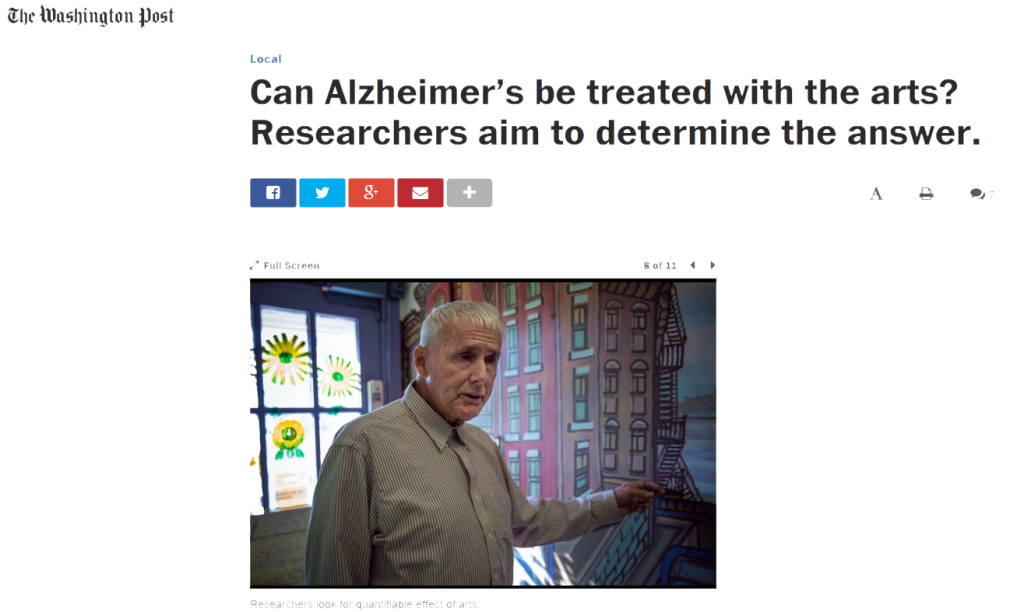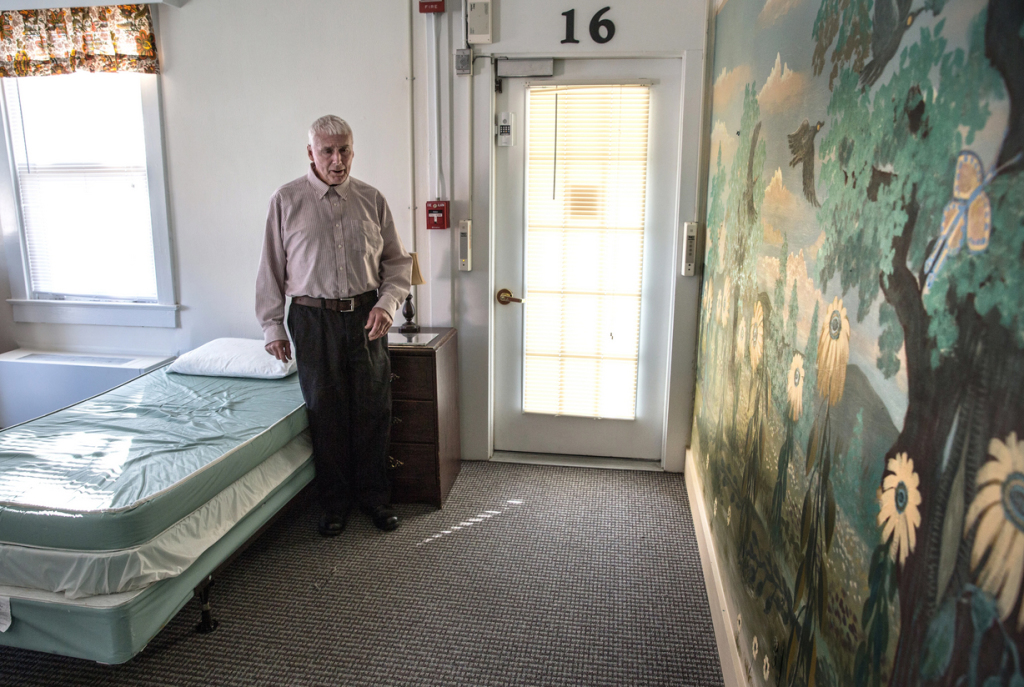Researchers are finding that music, art, and dance may be the key to improving mood and quality of life for those with age-related disabilities such as Alzheimer ’s disease.
Frederick Kunkle, a writer for the Washington Post, penned this article last week which noted that recent studies are focusing on the impact of the arts on elderly persons who have cognitive disabilities. Click on the image below to read Kunkle’s article at the Washington Post:
These studies differ from previous inquiries covering these diseases and the arts, as they are looking at the impact of the arts on the well-being, general happiness, and mood of patients, rather than simply looking at biological improvements in memory. Kunkle also noted that previous studies were often too narrow or poorly controlled, and that these new studies were more thorough and took into account the wellbeing of the patient as a whole.
These researchers are being supported by the National Endowment for the Arts (NEA) and the National Institute of Health (NIH). NEA department head Sunil Iyengar stated that these new studies were covering topics that researchers have tended to underplay in the last few years, such as how the arts can provide meaningful and measurable improvements in mood for both Alzheimer’s patients and their caregivers.
If you have ever had a family member who has suffered from an age related illness such as Alzheimer’s disease or dementia, you can understand how important mood and well being is for both the elderly person and their family and caregivers. These diseases most often cause drastic changes in overall mood, making sufferers more aggressive, irritable, and hostile. These studies are showing that exposing seniors to music, art, and dance can have a very measurable positive impact on their mood.
Kunkle’s article notes that dance and movement have been shown to help older persons avoid falls. Reducing fall risk is hugely important for elderly persons, as a fall can put a person out of commission for a long time and have a drastic impact on their health. The article also notes that music has been shown to help elders remember positive past experiences and to be more engaged in their communities, particularly in assisted living and other senior community settings.
In one assisted living facility in Mannassas, Virginia, resident George D. Moseley (70, suffering from paranoid schizophrenia) said that his training as an artist “…helps me to manage and cope, and have a positive attitude.” He went on to say, “The paintbrush and the art give me an outlook and a feeling of serenity and peace, love, and joy. The paintbrush is the treatment for all else that has failed.” George is pictured below, next to a mural he has painted in an empty resident room:
Many senior living communities, assisted living facilities, and memory care facilities are already putting art, music, poetry, and dance within reach for their residents. Hopefully this trend will continue and new studies will prove that the arts can improve the well being and quality of life for those who suffer from dementia and Alzheimer’s disease.

